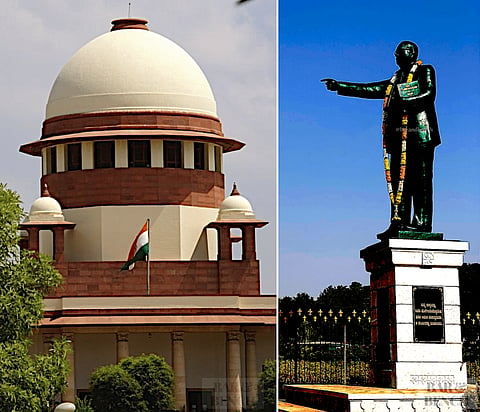
- News
- Columns
- Interviews
- Law Firms
- Apprentice Lawyer
- Legal Jobs
- हिंदी
- ಕನ್ನಡ

The Supreme Court will pronounce its verdict tomorrow on the correctness of its 2006 judgment in M Nagaraj v. Union of India which deals with reservations in promotions for SC/ST communities.